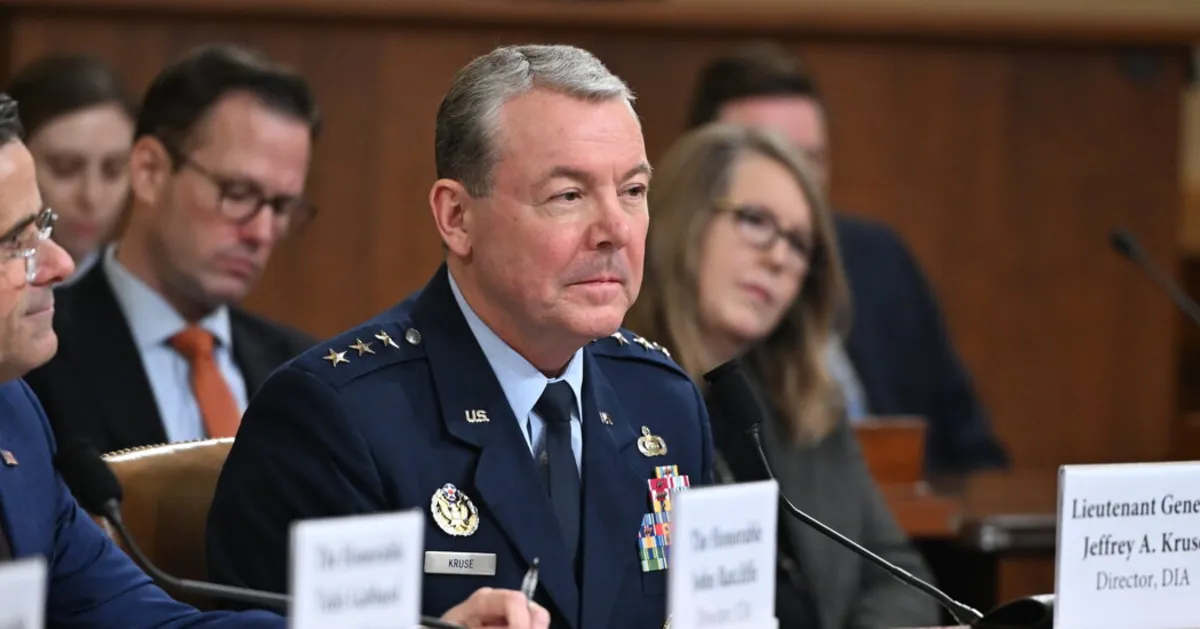
The Pentagon has made a significant change in its leadership by firing the head of the Defense Intelligence Agency (DIA), Air Force Lt. Gen. Jeffrey Kruse. This decision comes just weeks after the agency produced a preliminary report that challenged President Trump’s assertion that Iran’s nuclear sites had been “obliterated” following U.S. military strikes. This move marks a notable shift within the U.S. military intelligence community and raises questions about the influence of political considerations on intelligence assessments.
Lt. Gen. Jeffrey Kruse is the latest high-ranking official to be dismissed from the Pentagon, following the ousting of Gen. Timothy D. Haugh, the head of the National Security Agency (NSA), earlier this spring. Haugh's removal was reportedly linked to complaints from a right-wing conspiracy theorist. The recent discharge of General Kruse has drawn criticism, particularly from Senator Mark Warner of Virginia, the senior Democrat on the Senate Intelligence Committee. Warner expressed concern over the implications of such firings, stating, “The firing of yet another senior national security official underscores the Trump administration’s dangerous habit of treating intelligence as a loyalty test rather than a safeguard for our country.”
According to a senior defense official, who requested anonymity, General Kruse has been removed from his position as the director of the DIA due to “a loss of confidence” in his capabilities as a senior officer. However, it remains unclear whether he will be reassigned within the Air Force or choose to retire. On Friday, Congress was informed of this decision by Defense Secretary Pete Hegseth, indicating a shift in the agency's leadership.
In June, shortly after U.S. military strikes targeted three Iranian nuclear sites, the DIA drafted a preliminary assessment that indicated Iran's nuclear program had only been set back by a few months. This report, which was later covered by major news outlets such as CNN and The New York Times, prompted a strong backlash from the White House. Following the leak of this assessment, senior intelligence officials and White House representatives attempted to portray a more favorable outcome of the military operations against Iran.
Senator Warner emphasized the importance of honest, fact-based intelligence, stating, “That kind of honest, fact-based analysis is exactly what we should want from our intelligence agencies, regardless of whether it flatters the White House narrative.” He warned that when intelligence is manipulated or suppressed, it compromises national security, putting America at a greater risk.
The firing of General Kruse is particularly concerning given his extensive background, including a 34-year tenure in the Air Force and numerous senior positions related to military intelligence, both domestically and overseas. Following his departure, the agency’s deputy director, Christine Bordine, will step in as acting director until a successor is confirmed by the Senate.
Several former senior intelligence officials have suggested that General Kruse has faced criticism since the beginning of the second Trump administration. Earlier this year, members of Elon Musk's government efficiency team visited DIA headquarters and reportedly deemed the agency bloated with poorly defined missions. Additionally, there was frustration within the Trump administration regarding the slow progress of a database tool called MARS, which aims to streamline the management of intelligence data.
As the political landscape continues to evolve, the potential for further changes within the military leadership remains a topic of concern. Some Trump administration officials have voiced intentions to replace all military leaders appointed during the Biden administration, further complicating the future of the Defense Intelligence Agency and its critical mission.